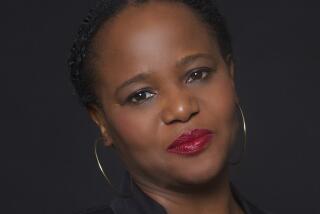Wendy Rawlings and the memoir she can’t write
Over at Bending Genre, novelist Wendy Rawlings writes about the memoir she can’t wrap her mind around, even after a decade and a half.
“Why do some nonfictional stories resist being told?” she asks, while offering, in capsule form, the narrative she fears may be her literary Waterloo: that of an affair with a man she refers to only as “the Irishman,” a deli stock manager with whom she “flirted through the workday, French-kissed in the walk-in freezer” and ultimately had a relationship lasting several years.
“On a table near my writing desk,” Rawlings tells us, “sit twenty-four journals I kept during the years of my love affair with the Irishman. They’re filled with details that evoke the tenderness and difficulty and hilarity of two people from very different backgrounds who fell in love nonetheless .… I’ve often tried to begin the memoir with one of these moments, but it falls flat. We are too ordinary; I cannot in words convey the charm of his accent and the unfettered pleasure he takes in his senses without turning him into a leprechaun.”
This, of course, is the challenge of the memoirist, to take what appear to be ordinary moments and reveal the fire that lights them from within. It is a form that comes with an essential double vision, the past reflected upon at leisure in the present, with all the back and forth implied.
For Rawlings, that is also part of the problem: “Is there an algorithm,” she wonders, “that will predict the moment when a writer can begin productively to translate life experience into nonfiction? Must a certain number of years go by? … In order to write the memoir, must our feelings toward the experience we want to write about be utterly neutralized, as by some reverse alchemy that changes gold back into workaday metal, ‘massively in love’ into mere material? But by the time I’ve reached neutral, will I still want to write that book?”
And yet, that’s the challenge, isn’t it, to find some sort of balance, a way to tell the story that is not neutral but also has the necessary distance by which experience can be alchemized into art? I don’t mean this as a criticism; the struggle Rawlings charts is one I know firsthand. How do we make literature from the substance of our living, when, as David Shields suggests in “Reality Hunger,” “[l]ife is, in large part, rubbish”? What does it mean that this “rubbish” is all we have?
Rawlings doesn’t have an answer to these questions — it’s the asking that’s enough. Here, perhaps, she gets at the heart of the matter, for this is what literature necessarily does. Spare us from the writer who knows everything; give us, instead, the writer full of doubt and questions, unsure of how to make her story work.
“Have I just not found the right form to tell this story, the right voice?” Rawlings asks us. “… Or are some stories meant only to be lived, not told?”
More to Read
Sign up for our Book Club newsletter
Get the latest news, events and more from the Los Angeles Times Book Club, and help us get L.A. reading and talking.
You may occasionally receive promotional content from the Los Angeles Times.









